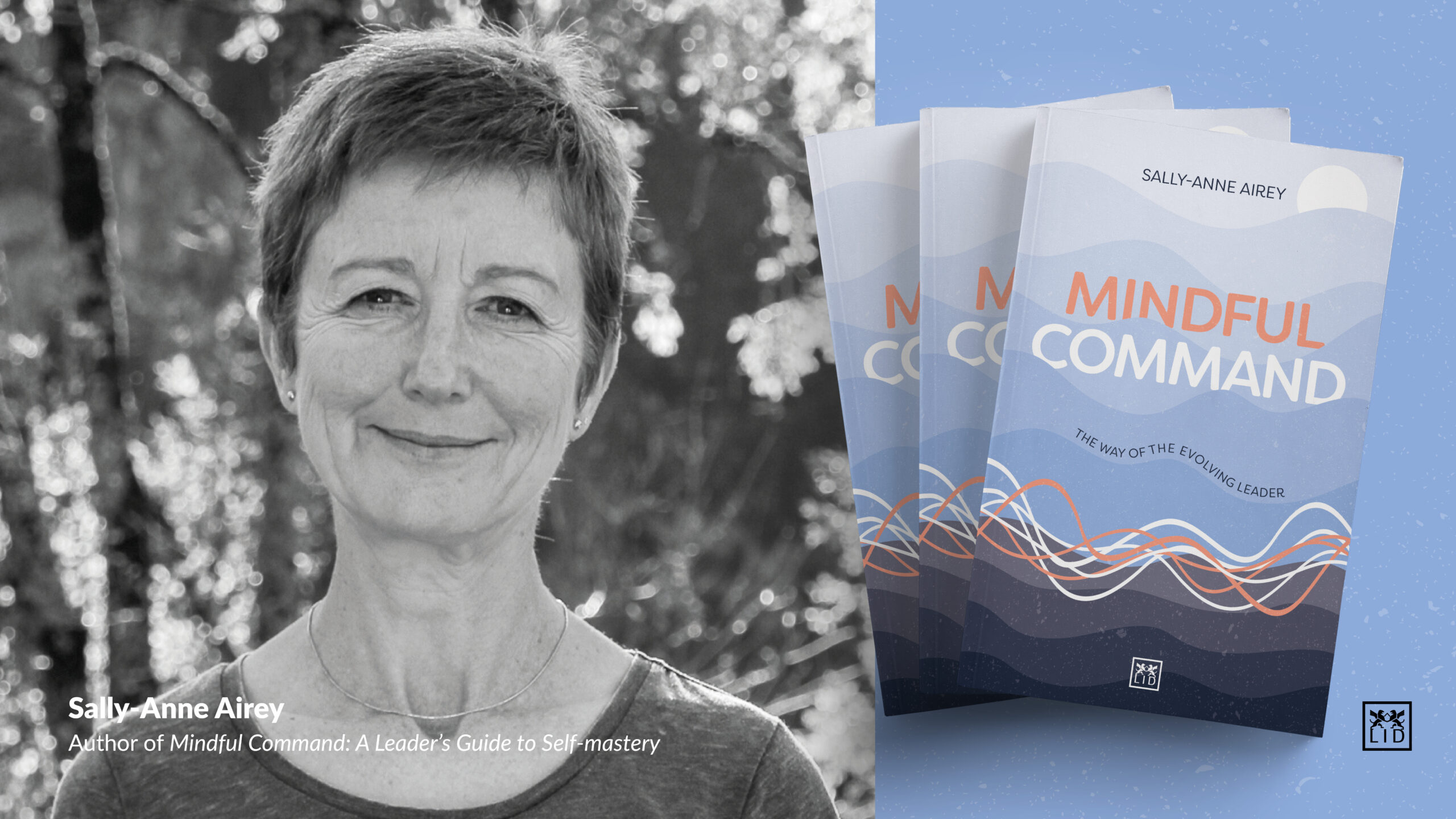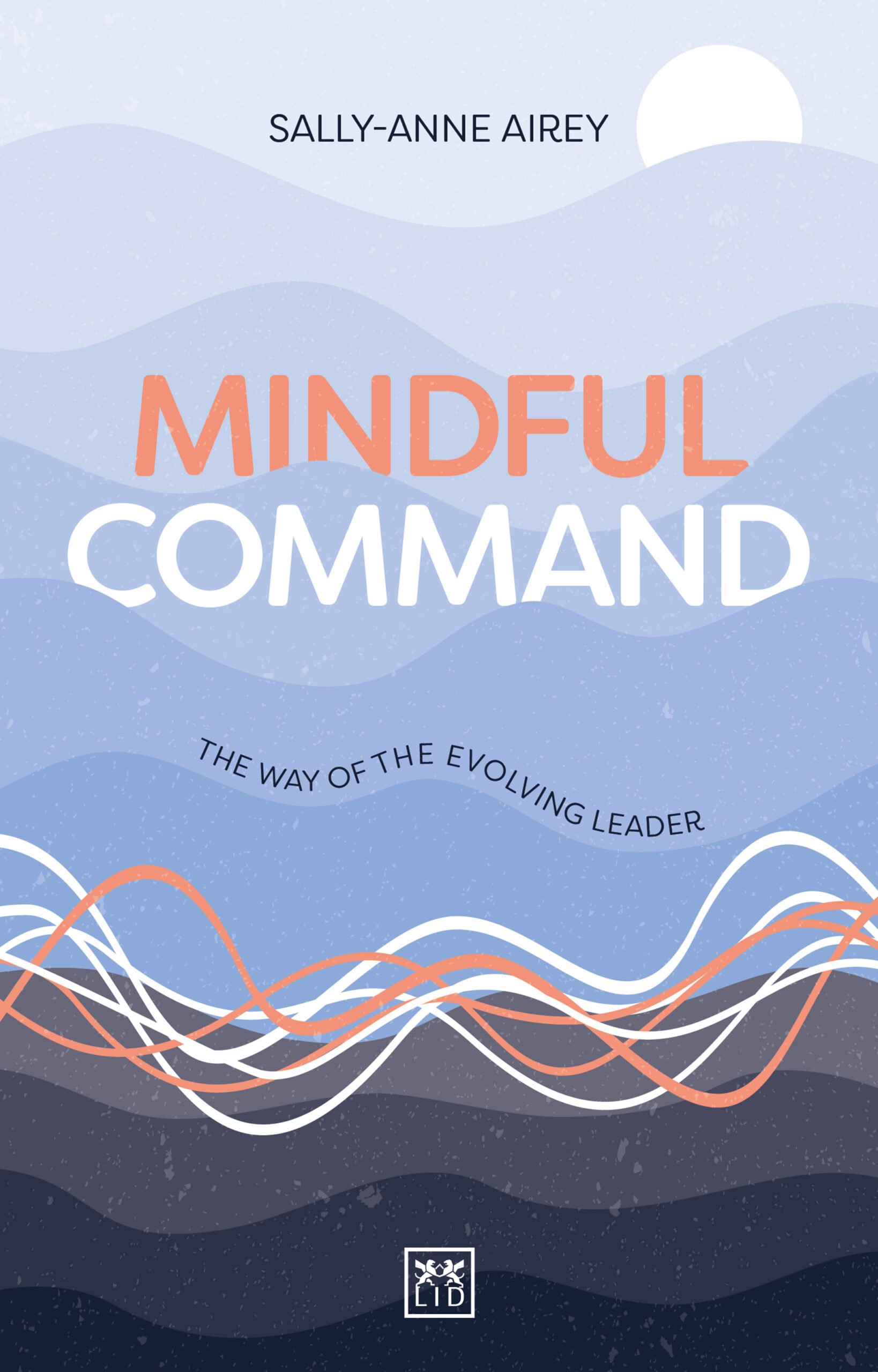|
What does Skilful Leadership Look and Feel Like? with Sally-Anne Airey
What does Skilful Leadership Look and Feel Like?

By Guest Contributor Sally-Anne Airey
According to former Royal Navy Commander and leadership coach Sally-Anne Airey, skilful leaders are inwardly directed and outwardly realistic and astute. Their thoughts, words and actions align with what matters most. And they embody the self-mastery necessary to inspire and lead others well, consistently, no matter what.
In this extract from her book, Mindful Command, she tells a story of one such leader in action, and how this has influenced her work today.
I owe everything I know about leadership to all the leaders I’ve worked with – good and bad, in the Navy and beyond – and to the teams and individuals I’ve led myself. Among them are a few whose impact spread far and wide, and from whom I have learned so much. From my time in the Navy, there’s one who stands out.
In 1989, Admiral Sandy Woodward was appointed Commander-in-Chief of the Navy’s Home Command. I was his Flag Lieutenant, or personal aide.
I remember how thrilled I was to be working directly for the former task force commander of the Falklands War, and equally how apprehensive. I needn’t have worried. From the very first moment, he was just himself.
What stood out for me in Sandy Woodward were not his military successes, nor his razor-sharp intellect. More important than those, in my view, was his genuine humanity. He could be demanding, impatient, brusque, and he was not universally popular, but he had an unerring ability to get to the heart of what mattered, and act on it.
And he was kind, not nice. You knew where you stood with him.
He once told me about a difficult choice he faced soon after taking command of the nuclear-powered submarine HMS Warspite in 1969. One year earlier, the vessel had been involved in a Cold War underwater collision with a Soviet submarine in the Barents Sea[1]. Warspite had been knocked over under water to an angle of almost 75 degrees, had swung back like a pendulum, hit the other vessel a second time and been knocked over again.
One year on, the submarine was newly repaired but not yet tested. Many of the crew were still shaken by the incident and had lost confidence in the boat’s capability and safety.[2] They were nervously anticipating what their new Commanding Officer would be like.
Calmly and without fuss, Woodward took the submarine and its crew out on a training exercise in which he included a series of extreme underwater manoeuvres, emergency dives and surfacings. These culminated in a very steep and rapid dive which took the submarine to the limit of its safe diving depth before pulling out.
In doing this, he was clear that what mattered most was gaining the complete confidence of his crew. He judged that nothing less than a comprehensive demonstration of the submarine’s capability would enable this. He understood the risks and had the necessary technical knowledge and skills to minimise them. He also understood what his people were capable of, even if they themselves doubted it. He was prepared to take them to the edge of fear, confident he could bring them back. He made a difficult choice, for the right reasons.
This was a calculated risk, but not a gamble. In leadership this is a critical distinction. Woodward saw what mattered most and had the courage to do what was necessary to achieve it.
His crew realised this. He won their trust and their respect.
° ° ° ° ° °
The mark of a skilful leader, in my experience, is not only to confront difficult situations and make the right decision. It’s also to create the conditions in which people can challenge themselves and grow.
In other words, skilful leaders roll strategy, tactics, and the welfare of their people into one.
° ° ° ° ° °
In 1982, when the Falklands War was about to break, Admiral Woodward was in the right place at the right time to take command of the naval and air forces. Their role was to land and support the soldiers and Royal Marines on the ground. Woodward’s role, above all else, was to make the tough decisions, often with incomplete information, on which people’s lives depended.
In his memoirs of that period, One Hundred Days. The Memoirs of the Falklands Battle Group Commander, he reveals his personal struggle with some of the decisions required of him and their impact on the people around him. “The scene has greatly changed”, he wrote in a letter home to his wife, “I am having to alter my ways.”
This reflection speaks to every committed leader in any context – business, politics, education, medical, or any other – faced with an impossible task. Impossible, because in the end there is never a real winner or loser. There are gains and losses along the way and neither victory nor defeat is ever complete.
The best a leader can do – and this is a great deal – is draw on their full human capacity to listen for what is needed and act on it.
° ° ° ° ° °
Seven years later, in a very different role, as commander-in-chief of all Royal Navy recruiting and training, Admiral Woodward made time to listen to my ideas on equal opportunity for women. He encouraged me to publish them in an article for a prominent naval journal. Later I was told that my piece helped inform the subsequent work on gender equality in the Armed Forces. In 1991, women were finally allowed to assume front line military roles and, in the Navy, to serve at sea.
° ° ° ° ° °
From these and many other experiences of good and bad leadership in action, including my own, I have concluded that skilful leaders have the following capacities in common: self-awareness, deep listening, clarity, and the courage to speak and act for what is right.
These are all things we can develop, to the benefit of the people we lead and love. In service of this, I offer leaders a holistic leadership framework – Mindful Command– as a place to start.

If you are prepared to do the inner work skilful leadership requires, the tools and practices described in my book Mindful Command provide tangible support along your way. Balancing your awareness, clarifying your purpose, stabilising your centre, and acting compassionately are all things you can learn to do. When you integrate them into your way of being, they become the stable ground on which your skilful leadership can evolve.
———————————————————————————————————————————————
[1] Documented from crew accounts in “Undersea Warriors” by Iain Ballantyne (Pegasus Books, 2019).
[2] In those days, Post Traumatic Stress Syndrome was not recognised, and no help had been available to them.
ABOUT THE AUTHOR
Suggested Reading
 Airey’s career in the Royal Navy spanned 23 years and during this time she observed all kinds of leadership, good and bad. Observing these leaders and the outcomes they achieved gave her huge insight into what works. In Mindful Command she presents her learnings and arguments as an international business leader, leadership coach and mindfulness teacher. Her reflections on what constitutes the essence of real leadership skill are current and valuable, and the book presents a simple, all-encompassing framework that enables leaders everywhere to grow.
Airey’s career in the Royal Navy spanned 23 years and during this time she observed all kinds of leadership, good and bad. Observing these leaders and the outcomes they achieved gave her huge insight into what works. In Mindful Command she presents her learnings and arguments as an international business leader, leadership coach and mindfulness teacher. Her reflections on what constitutes the essence of real leadership skill are current and valuable, and the book presents a simple, all-encompassing framework that enables leaders everywhere to grow.

